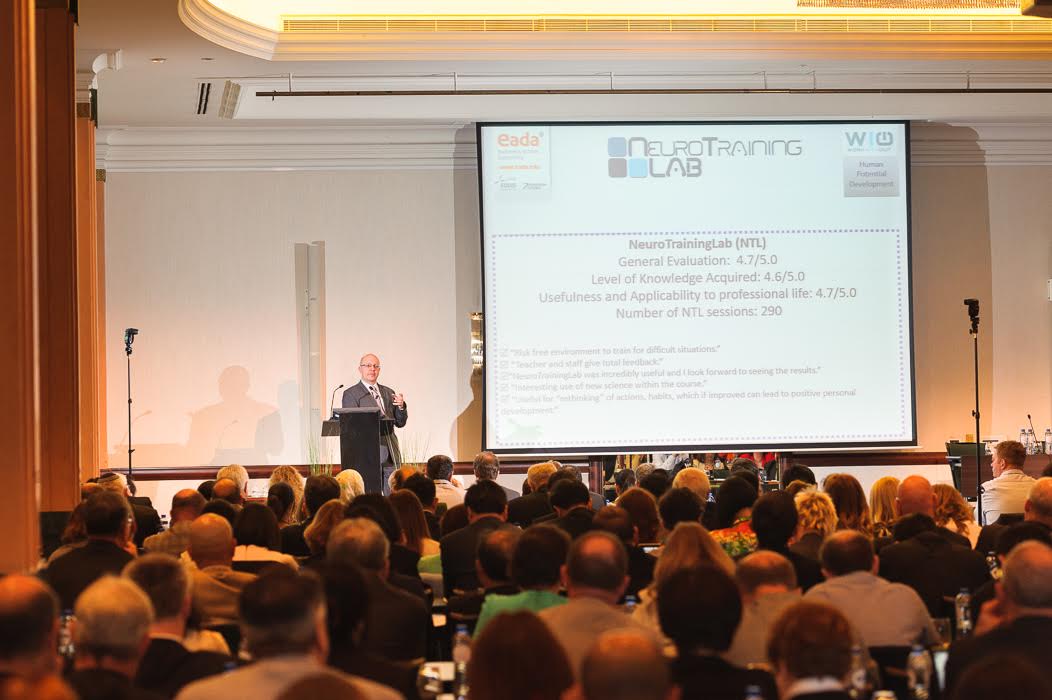Neuroleadership for being more competitive
Steven Poelmans: “The brain is the main productivity factor”
The latest Annual Conference of the EFMD –the European Foundation for Managerial Development, an international body that manages EQUIS accreditations– was attended by Steven Poelmans, director of the EADA Coaching Competency Center. In his presentation entitled ‘Quiet Leadership. Leading others with the brain in mind’, Poelmans explained how neuroscience can help to leader teams in an organisation and to improve the relationship with consumers. His basic tenet was as follows: “Managers are by definition knowledge workers. Hence the brain is the main productivity factor. Consequently understanding how the brain works can significantly improve productivity inside companies”.

EADA professor Steven Poelmans gave an interesting lecture on neuroleadership at the EFMD Annual Conference.
Techniques for quiet leadership
According to Poelmans, all leaders should aspire to “quiet leadership” and shy away from the common trend of “taking rushed decisions and of doing more with less”. There are various techniques in order to achieve this. One of them consists of specifying what are the organisation’s priority projects, those aspects that should be given more attention. “But it’s not only a matter of the manager’s being able to identify them but also of communicating them to his/her team so that everyone heads in the same direction.
Another technique involves controlling one’s emotions with a calm and peaceful attitude, meditating all decisions and making use of one’s sense of humour to address adverse situations. “One shouldn’t ignore setbacks, on the contrary, you need to face up to them but with this attitude”, pointed out the EADA professor. In his opinion “this will help the leader to make more right decisions and connect more with their team”.
Related to the above point, Poelmans recommended addressing complex decisions from a distance, in other words, analysing them independently as if they were something abstract. “This is one of the most complex parts, when a leader regards themselves from a distance, but at the same time it is the most interesting because this is really when the necessary changes take place for an organisation to evolve”.
Furthermore, the EADA professor advised leaders to listen and observe, to constantly inform their team of the decisions they have taken, to rest and use meditation techniques and keep stress situations under control whilst maintaining their focus on what is really important.
The neuroscientific revolution
In his presentation Steven Poelmans also reflected upon neuroscience’s contribution in several sectors and industries. For example, he explained that in the healthcare field neuroscientific breakthroughs have led to better monitoring of health indicators. In the sports field as well, where these techniques enable us to monitor and increase our endurance and recovery after physical exercise. Poelmans also mentioned other sectors such as the insurance sector, which today has more data on the health of a company’s employees, and to the field of education where one can see improvements in intellectual performance and learning.
